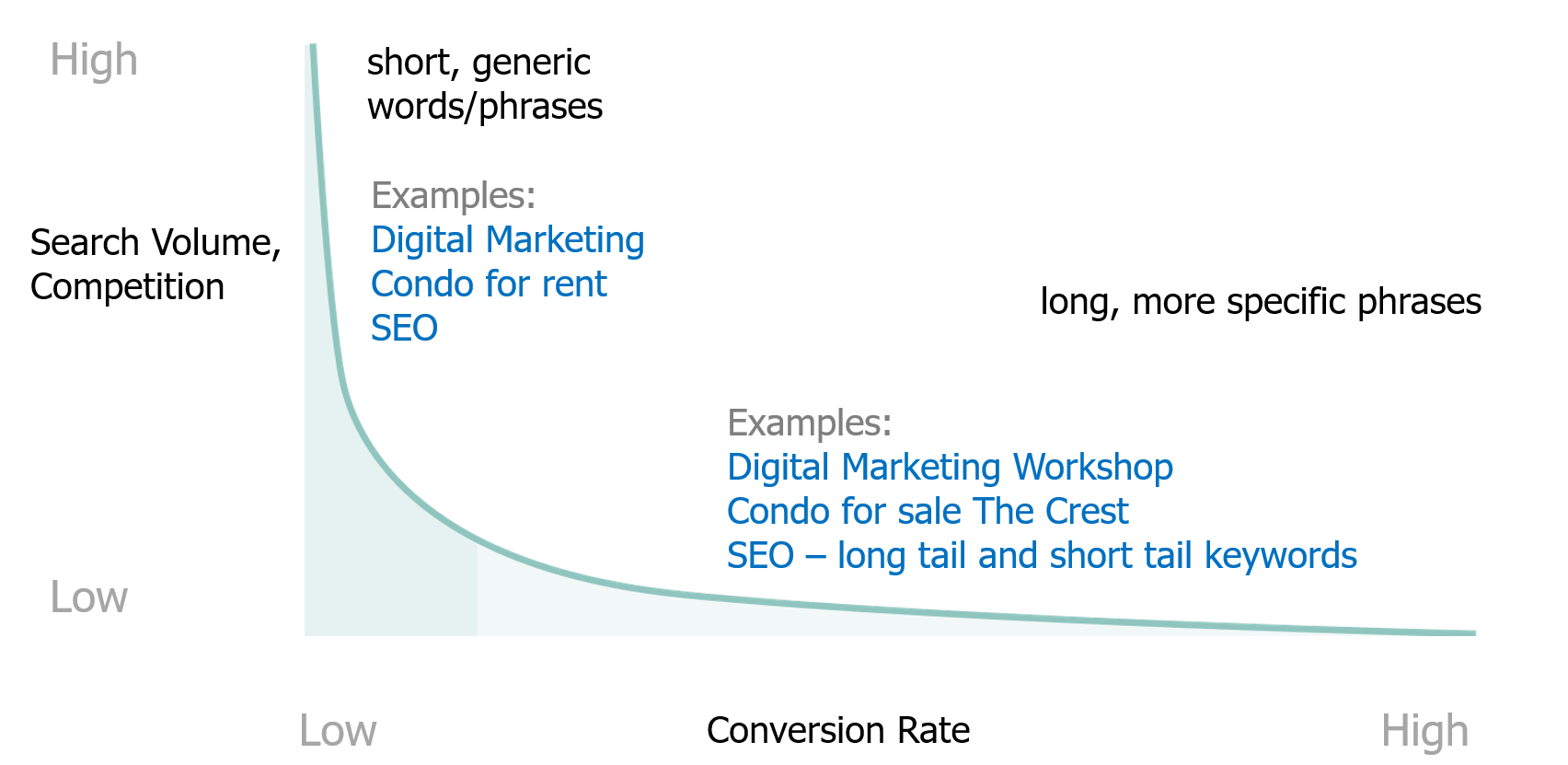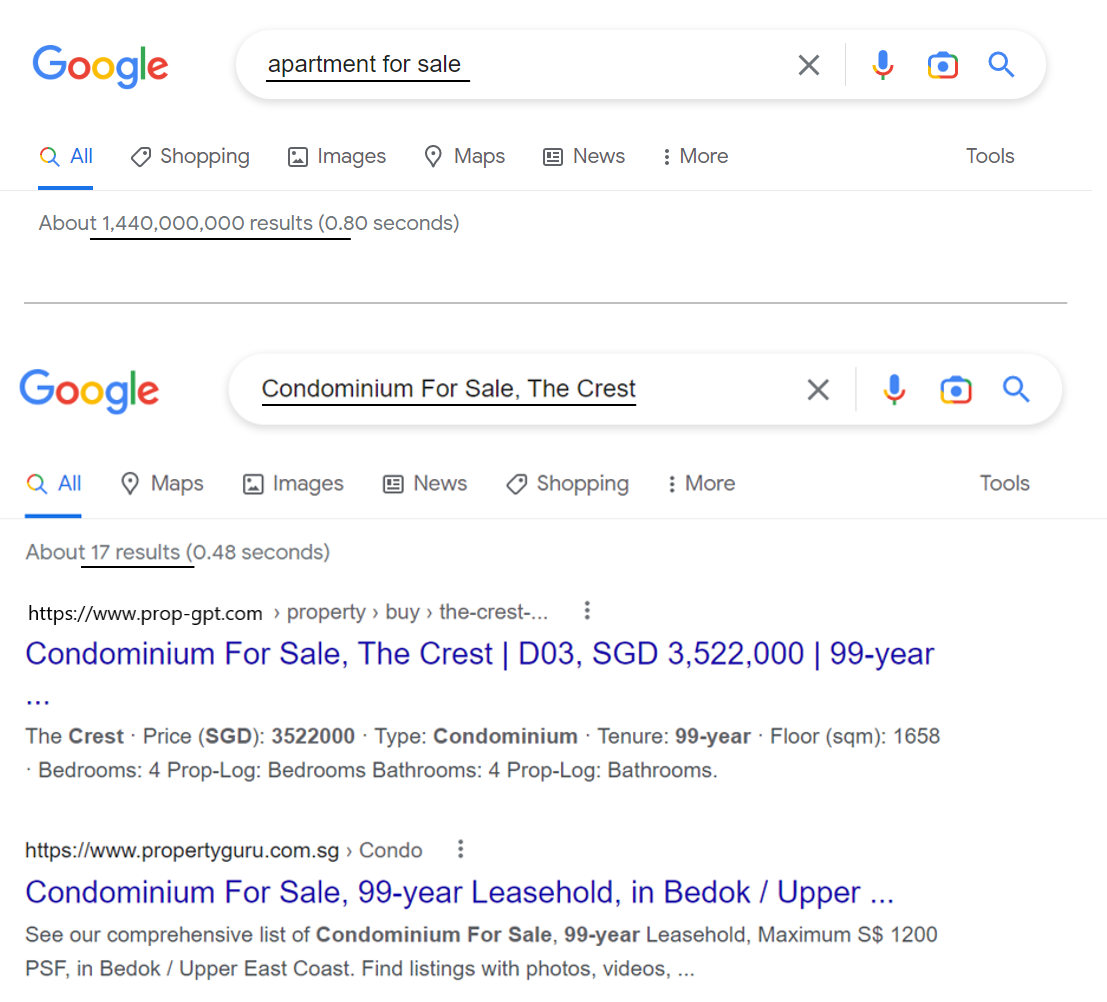
Exhibit 26.5 Long tail and short tail keywords.
Keywords may be classified as long and short tail
(Exhibit 26.5).
Short tail keywords are phrases with only one or two words.
They tend to be generic, often pertaining to the category as a whole, for instance “digital
marketing”, “condo for rent”, “SEO”, “shampoo”, “marketing”, “marketing analytics”, “washing
machines” etc. While these keywords can generate high traffic, conversion rates are likely to be
low. Additionally, it can be challenging to secure a high rank on search result pages, especially
for non-market leaders.

Exhibit 26.6 The short-tail keyword “apartment for sale” (above) generates 1.44 billion
results, whereas the long-tail keyword (below) yields only 17 results.
Long tail keywords are longer phrases that are more specific in nature.
For example, “SEO — Long tail and short tail keywords”, “Condo for sale The Crest”, “Digital marketing workshop”,
“anti-dandruff shampoo”, “marketing analytics for practitioners” and “front-loading low suds washing machines”.
They generate low, but better-targeted search volume that leads to relatively higher conversion rate. They also attract
lesser competition. For example, in Exhibit 26.6, a prop-gpt.com webpage secures top search ranking for the long tail keywords
that distinguish the site’s contents.
The number of keywords to target depends on the nature of your website, and its purpose.
To target large number of keywords, it is preferable to structure the site into multiple layers and pages, each page
targeting a few keywords. This would normally also improve the navigation and readability of the site.
Choice of keywords must relate to the page’s role in context of the
digital marketing funnel. To attract prospects,
one should consider short tail, generic keywords, as well as some long tail phrases. On the other hand, it is better to use mainly
long tail keywords for leads and customers.
Marketers should use short tail, category descriptive keywords to drive traffic to their home page, and
long tailed keywords to direct customers to product pages where the likelihood of conversion is higher.
Less established companies should aim for long tail keywords that better describe the unique features of
their product offering, to score higher ranking on search engines. These companies are compelled to advertise for short
tail keywords.